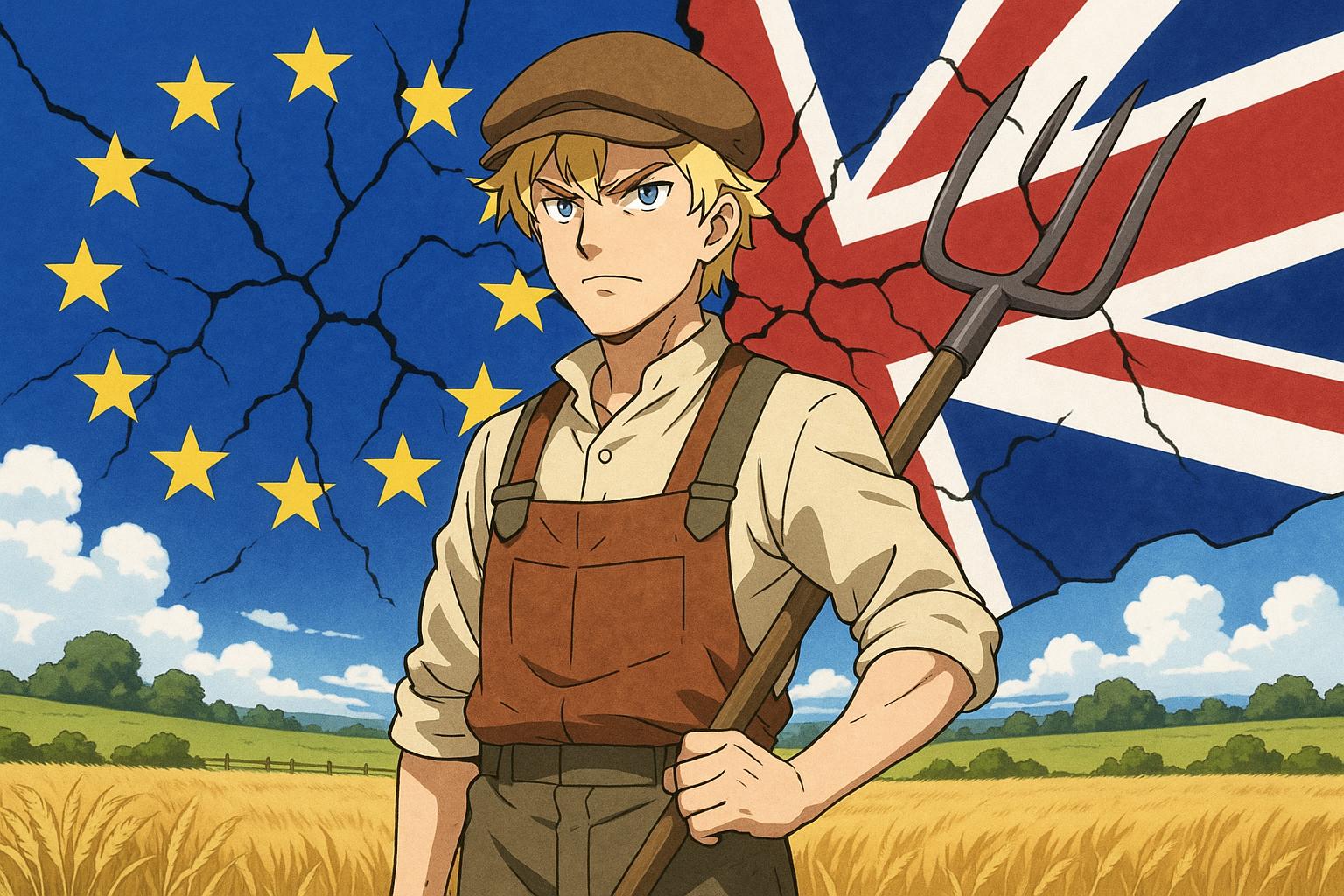British farmers are confronting a drastic shift in regulatory oversight due to Prime Minister Sir Keir Starmer’s recent agreement with the European Union. This deal grants EU officials the unsettling power to conduct unannounced inspections on UK farms, abattoirs, and food production facilities, imposing an EU-dictated regime of stringent food safety and hygiene standards. This so-called "dynamic alignment" with EU sanitary and phytosanitary (SPS) rules raises serious questions about sovereignty and sets a concerning precedent for British agriculture.
The backlash against this move has been swift and fierce. Critics, including farming groups and Eurosceptics, assert that this new wave of inspections directly undermines the hard-earned autonomy that was a fundamental pillar of the Brexit campaign. Victoria Atkins, the shadow environment secretary, has deemed this arrangement a “bad deal for British farming and fishing,” underscoring the alarming loss of control over our own food regulations and the extent of EU interference in UK waters. The fishing industry, now staring down the barrel of a guaranteed 12 years of EU access to our waters, is justifiably outraged at this capitulation to EU demands.
While some might point to similar frameworks in international arrangements with countries like Canada and New Zealand, the imposition of such oversight in the UK ignites a firestorm of political tensions. One agricultural source may be quick to label these routine checks as "normal," but for British farmers, it feels like an unwelcome relinquishment of control, particularly in a post-Brexit landscape.
Further complicating matters, the UK government continues to face criticism for its handling of import checks on EU goods since Brexit. The long-awaited implementation of post-Brexit inspections has been marred by delays, with the latest pushback postponing physical checks until January 2024. These delays, while touted as a means to curb inflation during an unprecedented economic crisis, only serve to underscore the government's failure to prioritize British interests. As new border controls loom on the horizon, there is a real concern that they could worsen food prices, adding to the hardships of hard-pressed consumers.
Moreover, the glaring discrepancy between stringent checks on UK food exports, which have been in place since January 2021, and the lack of equivalent standards for EU imports puts British producers at a significant disadvantage. Lizzie Wilson, CEO of the National Pig Association, has aptly characterized the government’s dereliction of duty in enforcing proper checks as “hugely frustrating” for UK farmers, not to mention detrimental to the integrity of our food system.
Reporting from the Associated Press underscores these growing concerns, highlighting that nearly 90% of the border control posts essential for food inspections remain unprepared. The vocal criticism from vets and farm leaders points to a chaotic and precarious situation that threatens to undermine food safety and put consumers at risk.
As British agriculture reaches this critical juncture—caught between compliance with external regulations and the need for national sovereignty—the implications for farmers are dire. Ongoing negotiations and the fallout from these inadequate policies leave farmers in a precarious position, uncertain about the future of their livelihoods in a post-Brexit Britain. The repercussions of these agreements and regulatory checks will indelibly influence the discussions surrounding trade, national sovereignty, and food safety in the years ahead.
Source: Noah Wire Services
